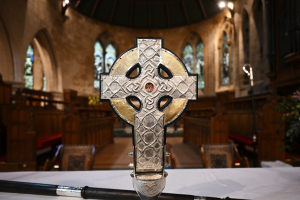Why socialists betrayed the working class

Allie Beth Stuckey interviewed me (and my fiancé, Annie) on her podcast, Relatable, last Friday. The interview was released this Monday.
Near the end of the interview, Allie and I talked about why leftists and socialists are condemning the Freedom Convoy’s peaceful protests even after they defended the Black Lives Matter riots two years ago.
I said one of the reasons why leftists and socialists hate the Freedom Convoy is because the truckers want what leftists and socialists hate most: freedom.
Leftists are happy to defend riots that demand more government control and they’re happy to denounce protests that advocate for freedom.
But there’s a more interesting reason why socialists hate the Freedom Convoy.
One of the reasons why socialists hate the Freedom Convoy is because Marxists have replaced the working class with a new proletariat: Anyone who isn’t white.
There are many black, brown, and Indigenous people in Ottawa and the entire country protesting the vaccine mandates. However, the Freedom Convoy is made up of mostly white, working-class Canadians, especially truckers.
In today’s political climate, that makes them “problematic.”
The working class is the original proletariat for Marxists. Karl Marx and his disciples claimed the working class is oppressed by the upper class (or bourgeoisie) through capitalism. According to the original Marxists, the working class and the upper class would remain in a class struggle until the working class gained class consciousness for a revolution that would overthrow capitalism and the upper class, in order to create a communist utopia.
After decades of failing to produce the utopia, socialists have betrayed their base — the working class — in an attempt to create a utopia with a different base.
In his book From Class to Race: Essays in White Marxism and Black Radicalism, one of the founders of critical race theory, Charles W. Mills said:
“The original white radical orthodoxy [from Marxism] was that: there is a primary conflict, and it’s class … My radical thesis [critical race theory] is that…there is a primary conflict, and it’s racism.”
In other words, the original Marxists believed the primary conflict in society is a class struggle between oppressive upper-class people against oppressed working-class people — like truckers.
Through critical race theory, however, many Marxists today believe the primary conflict in society is a race struggle between oppressed non-white people against oppressive white people — like white truckers.
It’s crucial to understand that. Critical race theory has changed leftist political strategy. Leftists no longer believe (white) working-class people are the proletariat, they now believe the (white) working-class is part of the bourgeoisie.
According to leftists today, the (white) working-class people are not oppressed. They are oppressors.
But the truth is, working-class people are not oppressors or oppressed. Race-centric Marxism is just as wrong as class-centric Marxism. The original Marxists were just as wrong as the critical race theorists.
Marxists claimed the free-market system is oppressive because they want government control, not freedom. In the same way, leftists today claim medical freedom is oppressive because they want government control, not freedom.
The original Marxists never cared about the working class. And the newer Marxists do not care about non-white people either.
Just as they now believe the working class is useless for their political agenda — one day, they’ll believe black people are useless for their political agenda too. In fact, it’s already happening. Through the concept of intersectionality, transgender people are already being positioned as the new proletariat.
Leftists and socialist politicians do not care about people, they only care about power. Their opposition to the Freedom Convoy exposes that.
Originally published at Slow to Write.
Samuel Sey is a Ghanaian-Canadian who lives in Brampton, a city just outside of Toronto. He is committed to addressing racial, cultural, and political issues with biblical theology, and always attempts to be quick to listen and slow to speak.




























